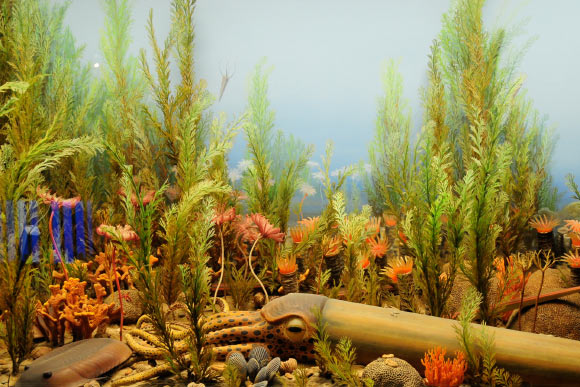Geologists from Tohoku University, Japan, Amherst College and Washington University in Saint Louis, the United States, say they may have found the cause of the end-Ordovician mass extinction, the first of the world’s five known mass extinctions.
There have been five mass extinction events in Earth’s history: the end-Ordovician extinction (450-440 million years ago), the Late Devonian extinction (375-360 million years ago), the end-Permian extinction (252 million years ago), the end-Triassic extinction (201.3 million years ago), and the end-Cretaceous extinction (66 million years ago).
The cause of the third and fourth was volcanic activity, while an asteroid impact led to the fifth. But triggers of the first and second mass extinctions had, until now, been unknown.
Dr. David S. Jones of Amherst College, Professor Kunio Kaiho of Tohoku University and co-authors looked into possible triggers of the end-Ordovician extinction.
“The first mass extinction occurred at the end of the Ordovician. This age is between the divergence of the Ordovician and land invasion of vascular land plant and animals,” the researchers explained.
“Animals in the Ordovician-Silurian comprised marine animals like corals, trilobites, sea scorpion, orthoceras, brachiopods, graptolite, crinoid and jawless fish.”
“Approximately 80% of species disappeared at the end of the Ordovician.”
The scientists collected sedimentary rock samples from two places — at Wangjiawan in south China and at the Monitor Range in Nevada, the United States — and analyzed them for mercury (Hg).
“We found Hg enrichments coinciding with the Ordovician mass extinction in both areas,” they said.
“This, we believe, is the product of large volcanic eruptions because Hg anomaly was also observed in other large igneous province volcanisms.”
“Huge volcanic eruptions can produce sulfate aerosols in the stratosphere. Sulfate aerosols are strong, light-reflecting aerosols, and cause global cooling. This rapid climate change is believed to be behind the loss of marine creatures.”
Details of the research were recently published in the journal Geology.
Source: Sci News

































Leave a Comment
You must be logged in to post a comment.